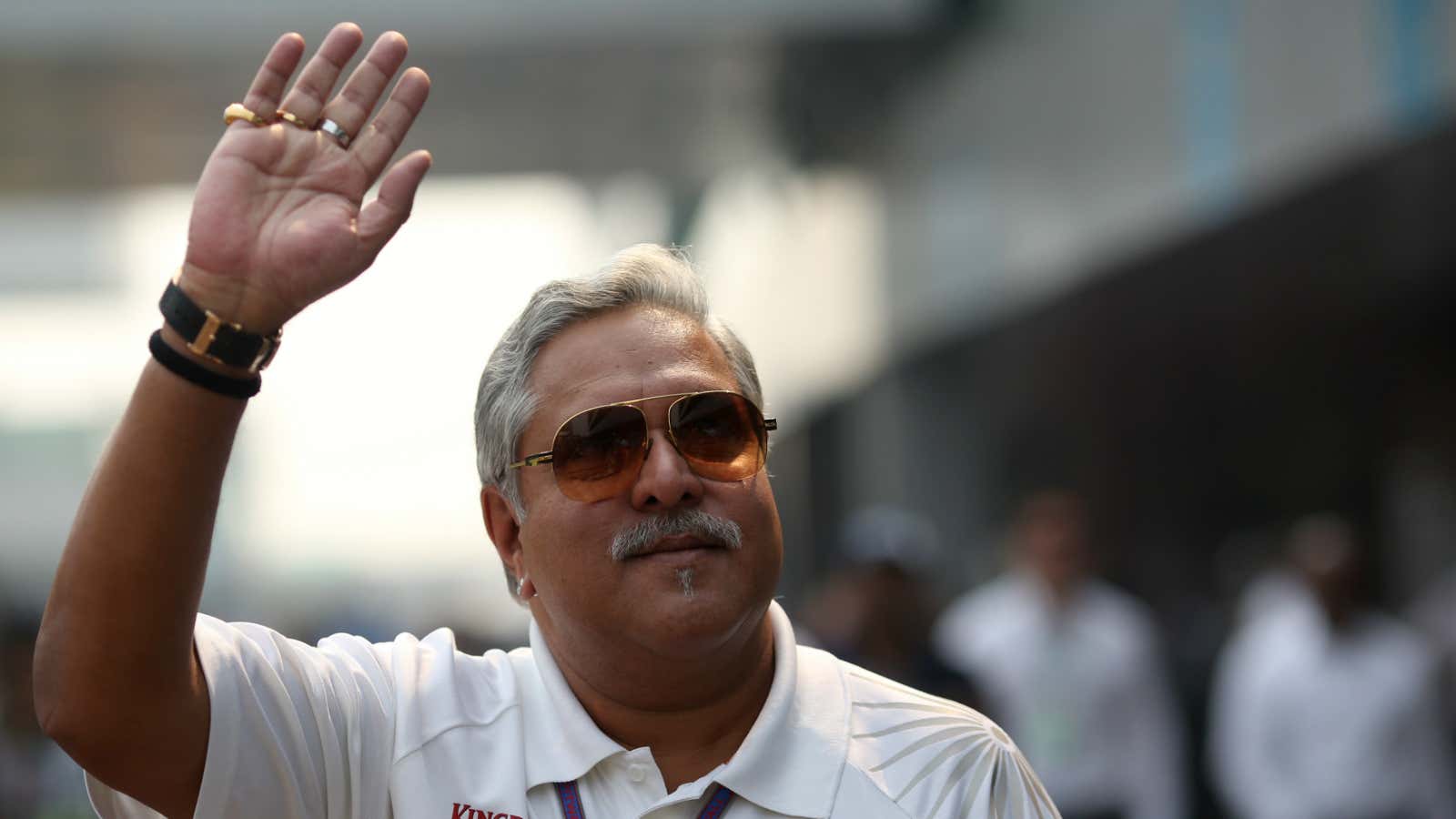Vijay Mallya is angry. Very angry.
In the last 10 hours, Mallya, once a high-flying Indian billionaire, has taken to Twitter and accused everyone—from media houses to banks—of trying to spread “lies” about him.
Mallya is at the heart of a probe into the now shut Kingfisher Airlines, which owes over Rs9,000 crore to banks in India. The Indian government had claimed that Mallya, who founded the airline, had left the country on March 2. That was the day a Bengaluru Debt Recovery Tribunal heard the plea of a consortium of 17 banks. The banks were against Mallya getting his hands on the Rs515 crore ($76 million) payout from Diageo, which now owns his liquor business.
Although he has been criticised for ”absconding,” Mallya on Friday (March 11) decided to come out swinging.
“I am an international businessman. I travel to and from India frequently. I did not flee from India and neither am I an absconder. Rubbish,” he posted on Twitter.
Kingfisher was once India’s second biggest airline by market share, and Mallya and United Breweries Holdings had stood guarantee for the airline. When the airline collapsed in 2012, mostly due to mismanagement, Mallya blamed macro-economic factors and government policies for the failure.
Here are some of his other tweets:
Over the last year, Mallya, widely known as the “king of good times,” had fallen from grace after losing control of his liquor business—his group’s cash cow. Mallya had ploughed money from United Spirits—the brewery he inherited from his father—and its flagship United Breweries, into the airline business. But as Kingfisher went bust, Mallya also lost control of his liquor business.
Today, Heineken is the single largest shareholder in United Breweries while Diageo controls United Spirits.
Kingfisher Airlines began operations in 2005, and was launched on Mallya’s son’s birthday with much fanfare. For a company that never made profits, Mallya also bought out low-cost carrier Air Deccan in his bid to expand operations. With the global economic collapse and rising oil prices haunting him, he went on borrowing aggressively. That was the beginning of the end.
Kingfisher finally went belly up in 2012. Mallya was named a wilful defaulter by some of India’s biggest public sector banks, including the State Bank of India.
Blame game
Thanks to Mallya, India’s ruling Bhartiya Janata Party (BJP) is also facing flak. Mallya is a member of the Rajya Sabha—the upper house of parliament. He is also on the consultative committee for the ministry of civil aviation and a part of the parliamentary standing committee on commerce.
Mallya, who has maintained close ties with the who’s who of Indian politics over the years, has friends cutting across party lines, including the BJP and the Congress. His election to India’s upper house was backed by JD(S), a party floated by former Indian prime minister HD Deve Gowda, and the BJP.
With the government on the back foot, India’s top government lawyer, Mukul Rohatgi, has asked for the crisis not to be ”blown out of proportion.” “I am sure if Mr. Mallya comes back, he is welcome to sit across with the banks, work out a solution, and I think it can be worked out.”
But that hasn’t stopped political parties from starting a blame game. For instance, the Congress is now attacking the BJP.
“When a poor man steals, he is beaten up and thrown into jail. Someone who does not have food to eat and steals a roti is beaten up and put behind bars and a big businessmen who steals Rs9,000 crore, you allow him to escape in First Class from the country. What is this happening?” Rahul Gandhi,vice president of the Congress party, said.
Finance minister Arun Jaitley, meanwhile, has assured that the banks have been asked to take back “every penny that is due.”
